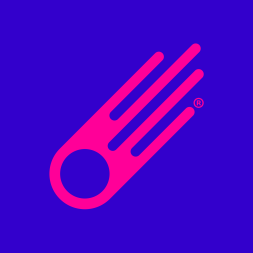The Apps We Never Made... and why

Author
Bad Dinosaur TeamWe thought we would share some of the most common app concepts that come our way that we have to turn down, and break down the reasons why they’re a challenge either to create or to bring to market. Have you ever considered one of these ideas before?
We love hearing about app ideas, and we get to hear new concepts every day! We’d love to bring every client’s ideas to life, but, one of our values as a team is honesty, and the greatest testament to that is the work that we turn down. We work with clients to build brilliant apps that solve real world problems, but we’re not in the business of building something that we don’t think has market viability just for the sake of it. Here are the most frequently pitched concepts that we sadly tend to turn down:
1. An app which tells you which supermarket has the cheapest checkout cost
Supermarkets are always running special offers and various discounts at any given time, but it’s hard to keep up with which ones are selling your favourite products at the best price. It would be great if you could virtually fill your trolley and then see where to get groceries the cheapest. The most challenging part of building a price comparison app for supermarkets is that prices and stock levels fluctuate hugely. Furthermore, in the interests of competition, most supermarkets do not expose their pricing data in a way that developers can easily integrate. There are also issues around whether you’re ordering your shop online or doing it physically, because the supermarket you choose may not hold the same stock as the price comparison site, or offer the same prices. For instance, smaller local supermarkets (think ‘metro’ or ‘express’ shops) tend to have higher prices than the larger superstores, for the exact same product. On average, consumers pay 9% more for local convenience. Ultimately this one is a great concept in theory but it’s not brilliant in practice.
2. A map of a large and complicated commercial space - such as a hospital, shopping center or airport.
We’ve all been there, it’s tricky trying to navigate these huge and often crowded spaces when you’re not familiar with them. It would be great to have a handy app in your pocket that could tell you where you are, where the nearest bathrooms are, and what way the elevator is. The primary issue with apps like this is security. Shopping centres, airports, stadia, and hospitals are considered high risk locations owing to the volume of footfall. Giving public access to blueprints of a big public space along with services locations, fire exits, and entrances poses a significant security threat. As such this information is not made available. Furthermore, frequent changes to location layout means chaos for development, with expensive changes needed on a regular basis to keep things accurate.
3. A fridge inventory or recipe builder based on what's in your cupboards.
How many times have you stared into a jam-packed fridge and still had no idea what to cook? How many times have you committed to a recipe only to discover you're missing a key ingredient but it’s already too late? This app concept certainly would solve a real work problem, but it’s been done before, and it’s not the most usable in practice. The expectations on the user are simply unrealistic for most people. Only a tiny fraction of users will willingly log every spoonful of jam, splash of milk in their tea, or knob of butter they use, and the last thing you want to do after hauling a whopper of a big shop up the stairs is to log everything in the app, including quantities and sell-by-dates. Unless all steps are followed the app isn’t really very helpful in most cases.
4. Most dating apps
This can always be a bit contentious. It’s a hugely crowded marketplace already, so having a niche angle is vital if it’s going to be viable. Most of these angles, however, involve discriminating against protected characteristics which is something that - alongside things like gambling apps - we tend to be cautious about. That’s not to say we have a hard and fast rule against it, we have worked with clients on things like faith-based dating apps in the past, and our ‘dummy’ proposal that we share with clients to give them an idea of what to expect is about a fictional dinosaur dating app. For the most part though, we steer clear.
5. COVID-19 spin-ups, like 'how long is the queue at Asda right now?', or 'what coffee shops are open within my permitted radius?'
These concepts are hugely complicated, expensive to execute, and will be largely redundant post-pandemic. In our workshop session we distill the concept down to the core problem that it is looking to solve. In instances like this where the problem is lack of access to information, an app can solve this problem by pulling that data (from a feed, or a database or an API etc) and serving it to the user in an accessible format. But, the information needed for these COVID-19 spin-ups simply isn’t available anywhere to begin with. And, even if it were, similar to the large commercial or public space concept, this information is subject to constant change, making it very difficult to ensure that the information is up to date. And, if the information isn’t up to date (and you schlep all the way to Asda in search of flour only to be bitterly disappointed) then users will have a very poor experience.
